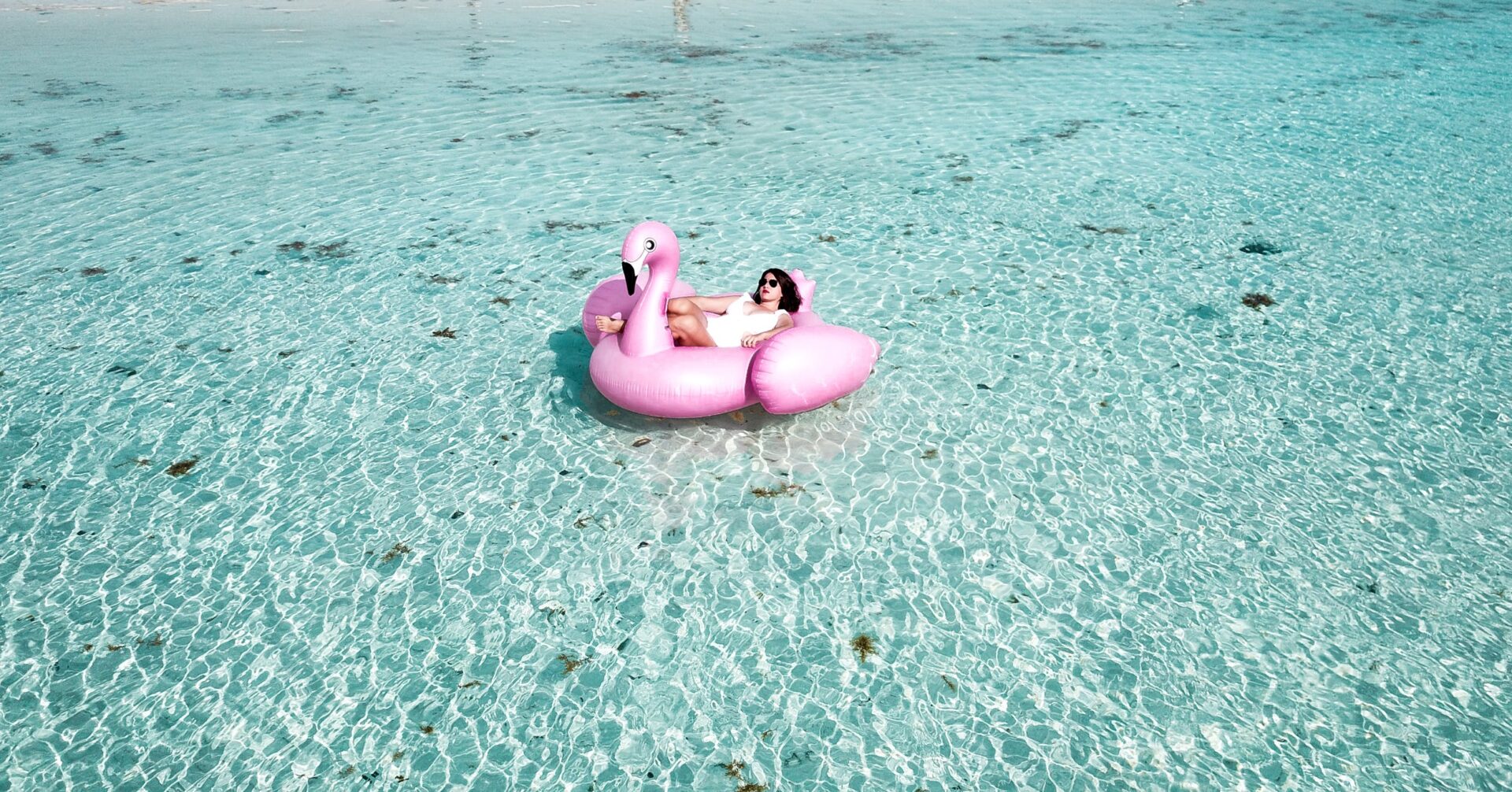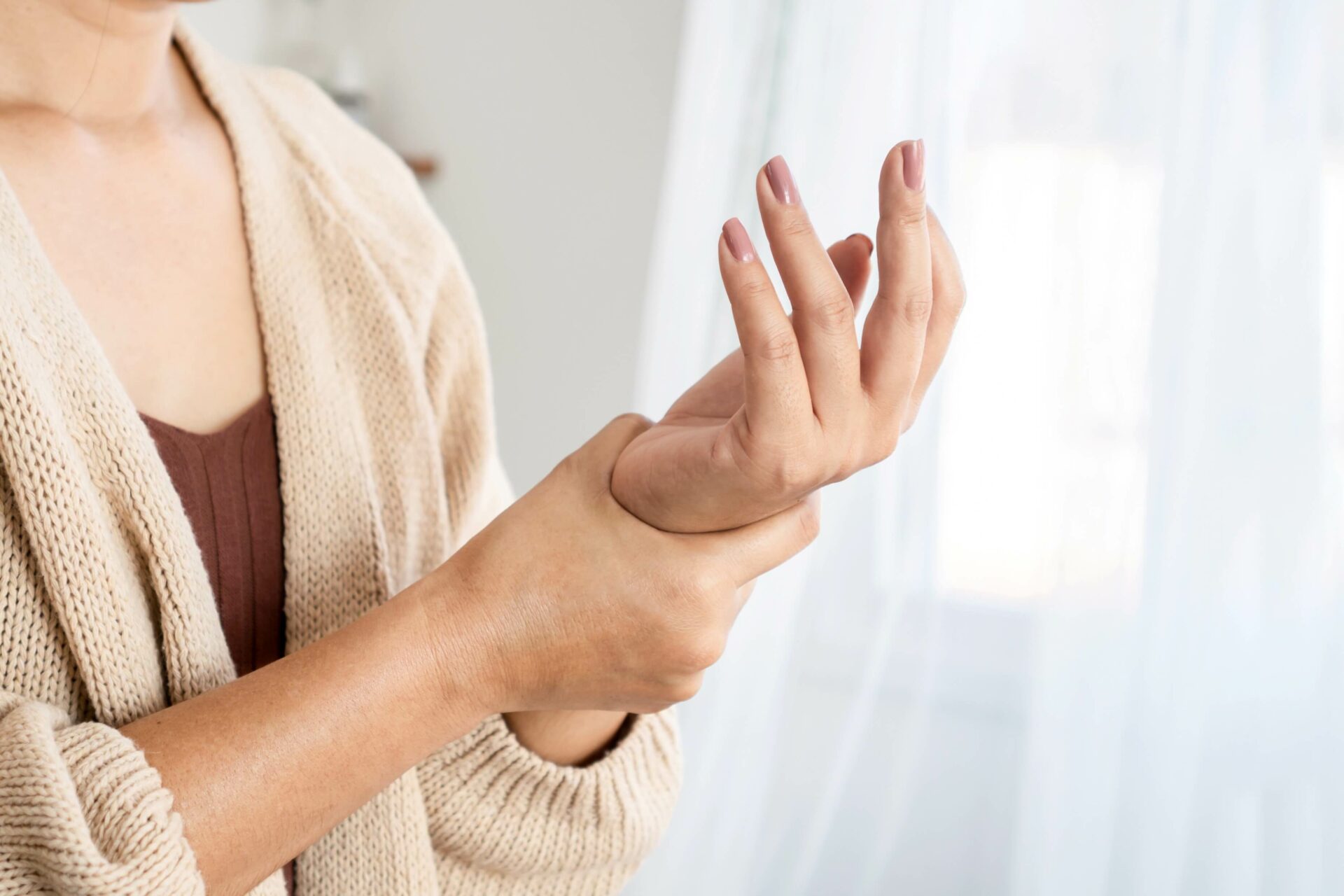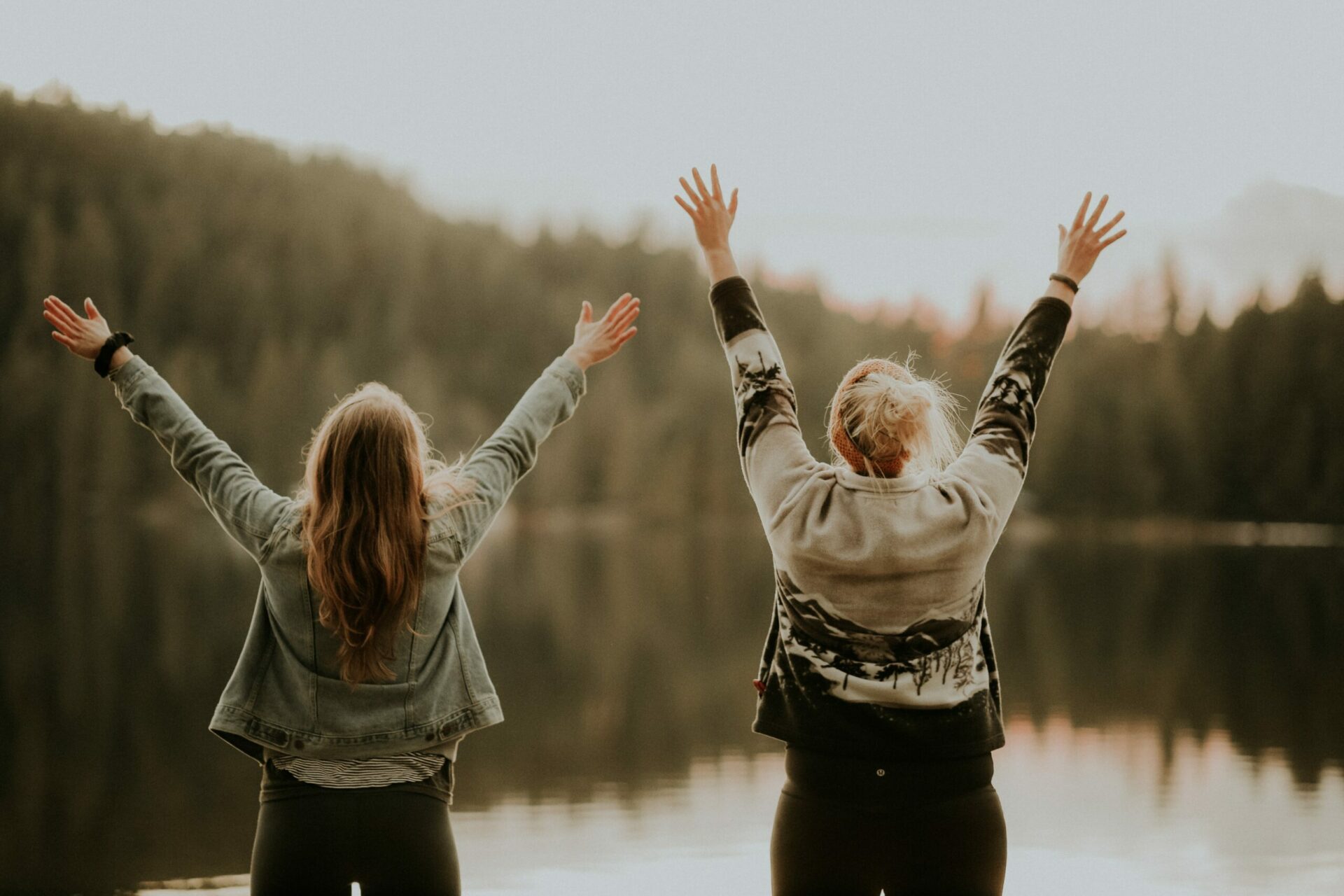Make sure you use the right sunscreen!
The sun lures us out of the house, makes us want to go on vacation to the beach and gives us a summer tan.
However, we often underestimate the power of the sun's rays. Carefully applying lotion to the whole body often takes too long or we are simply too lazy to make the effort. Especially at the beginning of the year, on the first hot summer days, the sun is to be enjoyed with caution!
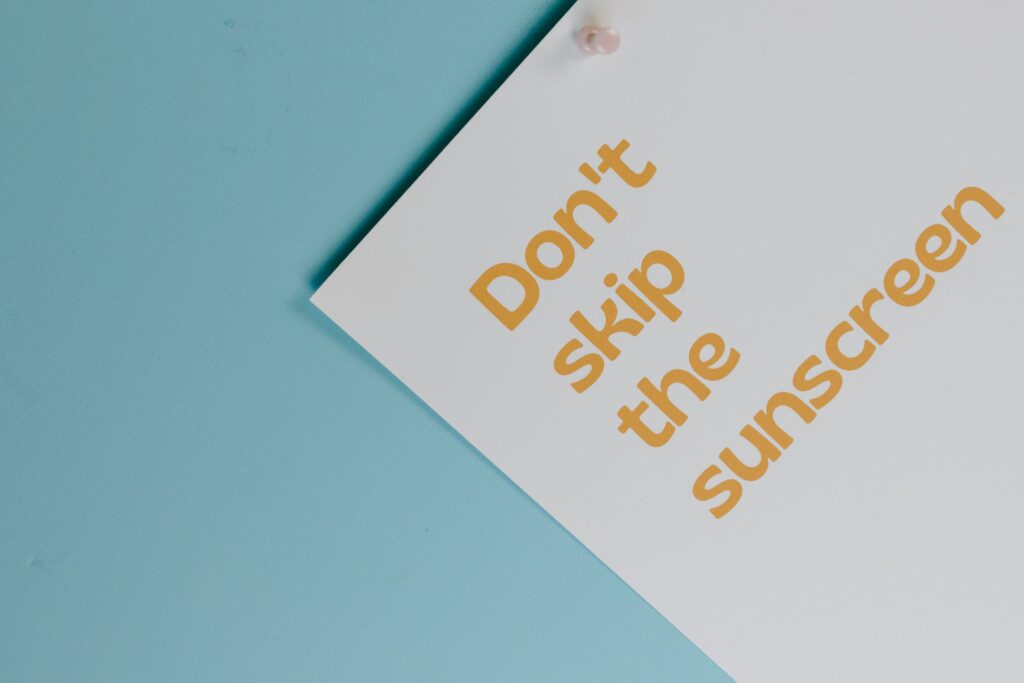
After the long winter months, the skin still reacts particularly sensitively to the sun. Quicker than you think, you have a first sunburn. Sun protection with a sun protection factor is therefore a must!
In this article, a few facts about sunbathing will be tested for their truthfulness. In addition, the effect of too much UV radiation on the skin is explained and you get tips for healthy sunbathing, as well as for care after sunbathing.
Is it true? Facts or myths about sunbathing
"Tanned skin protects against sunburn".
This is a half-truth. The observation is true that if your skin has been exposed to the sun more often, it will turn red less quickly. However, it is generally true that each additional hour of sunlight is an additional burden for the skin. Skin represents. The effect of "getting a tan" is a protective mechanism of the skin. It is therefore, so to speak, the body's own sun protection factor. However, this is only very low and is therefore not sufficient to protect the skin adequately.
"Sunshine is good for the psyche".
That's right! This is due to the production of the happiness hormone serotonin, which is triggered by daylight and has a mood-lifting effect. But not only the psyche is positively influenced. The sun triggers other positive effects in our body. It supports our natural sleep-wake rhythm and thus strengthens by a healthy Sleep our Immunesystem and our concentration. In addition, the sun's rays promote the formation of vitamin D in our skin. Vitamin D promotes muscle and bone growth and is important for the normal functioning of the immune system.
"Only when the skin turns red is it dangerous".
This is not quite true. Sunburn is caused by the short-wave UVB rays, which is the immediate visible damage on the skin. The UVA rays, on the other hand, penetrate deeper into the skin and can cause DNA damage. The negative effects of the sun add up in the long run and affect the appearance of the skin. In the worst case, too much sun exposure on a regular basis can lead to skin cancer. As we age, the skin finds it harder and harder to recover from sun damage, which is why it is so important to apply sunscreen to the skin.
"You don't get sunburned in the shade"
Of course, you are exposed to less radiation in the shade than in the blazing sun, but even here you can get a sunburn if the UV radiation is very high. Bright surfaces like sand, water or buildings reflect up to 85 % of the radiation intensity. So if you have particularly sensitive skin, you may get sunburn even under a beach umbrella.
"The more often I put cream on, the better protected I am".
Sunscreen prolongs the skin's own protection time. Without sunscreen, this is about 10 - 30 minutes. If you use a cream with a sun protection factor, the protection time is extended once. If you apply the cream a second time, the sun protection factor is not doubled. However, it makes sense to reapply the sunscreen after a few hours, as the protection is partially lost through sweat, water or friction. Again, the protection is then not extended, but it only serves to maintain it.
"A lot helps a lot"
That's right! Most people are too sparing with their sunscreen. The rule of thumb here is: 2 milligrams of cream per square centimeter of skin. For a body height of 1.80 m, this means about 3 tablespoons of sunscreen. A small child needs about 1 tablespoon. The lighter your skin type, the higher the sun protection factor should be. Also make sure that your cream has both a UV-A and a UV-B filter. If you use a spray sunscreen, you should still rub in the spray afterwards to protect your skin sufficiently. Especially sensitive areas like the ears or the nose need an extra portion of sun protection and must not be forgotten.
Why sun protection is so important!
Prevent premature skin aging & skin cancer
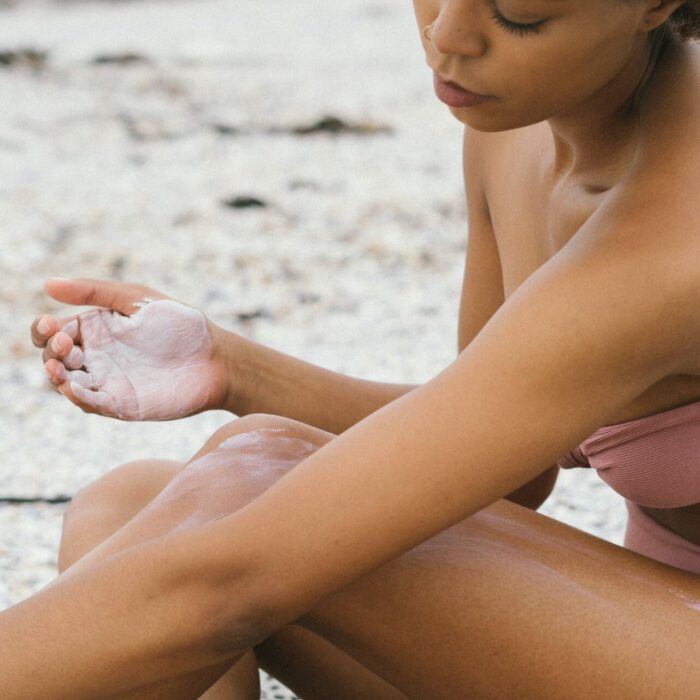
Summer is the favorite season for many people. Sunbathing is simply part of it. It is important not to underestimate the consequences of sunburn. The skin is the largest organ of our body, which must be protected.
Therefore, many dermatologists say: "The skin never forgets", it remembers every sunburn and in some cases cancer cells start to grow very slowly as a result.
Basically, too many UV rays can destroy the body's own collagen. As a result, the skin loses elasticity and the formation of wrinkles or skin aging is accelerated. In addition, excessive exposure to radiation increases the skin's pigmentation and age spots can develop.
5 rules for sunbathing
- Know your own skin's sensitivity to the sun. It is important to be aware of how much sun you can expose your skin to. Some have a higher risk of developing skin cancer than others. Sun sensitivity is one of these risks. Additional risks include clustered occurrences of skin cancer in relatives, many moles, many sunburns over a lifetime.
- Avoid the midday heat. UV rays are strongest at midday. It is therefore advisable to retreat to the shade at midday and prefer to postpone sunbathing until the afternoon.
- Do not lie down for too long. Some, with particularly sensitive skin, can get sunburned after just 5 minutes in the blazing sun. Others lie on the beach all day and get away without it. Basically, you should not overstress your skin and better get out of the sun after half of the protection time of the skin.
- Also protect the lips. There is special lip care with sun protection factor to protect the lips from the radiation. If you put cream on your face, you basically leave out your lips and expose them to the sun without protection. In the long term, this can lead to the development of lip herpes or even lip cancer.
- Pay attention to the age of the sunscreen. Sunscreen loses its protection over time. As a rule, the effectiveness is guaranteed for up to 12 months.
After care after sunbathing
After a relaxing day in the sun, it is important to take proper care of the skin. The sun is a stress factor for the skin. Sensitive skin areas should now be protected from permanent damage with the right after-care.
Once home, it is advisable to take a shower. Use gentle cleansing creams to clean the skin from residual sunscreen, sweat or sand. After a long sunbath, do not stress the skin further and do not use exfoliants or irritating cleansers.
You should also be a little more careful when drying off after tanning and only dab your body gently instead of rubbing wildly.
To soothe the skin and give it back the lost moisture, it helps to use after-sun products. They have a cooling effect on the skin and protect against tense and itchy skin.
Make sure that any cosmetics or perfumes you put on your sun-exposed skin are free of artificial colors or chemical additives. If you have been lying in the sun for too long, some home remedies can help to soothe the redness:
- Cool compresses from green tea
- A curd or yogurt mask
- Cucumber slices
- Aloe vera
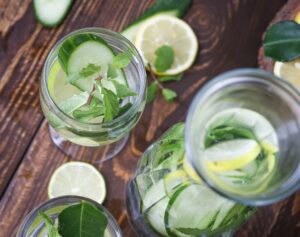
Don't forget to drink enough!
In this way, you help the body to replenish its moisture stores from the inside. In hot weather, an adult should drink at least 3 liters of water a day. Of course, the amount also depends on how active you are during the day.
For example, you can easily mix a nice refreshing summer drink from still water with lemon slices, cucumber, mint and plenty of ice.


